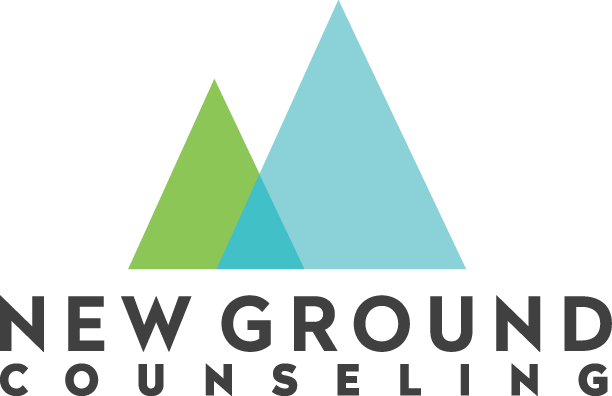Forgiving Is Not Forgetting
NO ONE IS UNWOUNDED
“I’d rather not talk about all these hurts from my childhood. I’ve worked really hard to forget all of that. Can we just move forward without trying to forgive my parents?”
James came to counseling hoping to be released from the harm he’d experienced as a child. But as we begin to talk about forgiveness, he said what so many of us feel toward our former hurts: “Can I skip the forgiveness part? Can I just forget it?”
In counseling, I have met with…
A daughter who was treated as lesser than her older sister, and was often told by her mother, “I wish you would look at your sister and be more like her.” As an adult, she continues to ask, “Am I lovable?”
A set of grandparents who have been hurt and maligned by their adult son, who believes they have ruined his life. Now, in his own pain, he refuses to allow them to meet their grandkids. And they’re heartbroken.
Many marriages who have had to walk through the incredible pain of an affair, and are asking “How can we put the pieces back together again? How can my heart heal after such terrible heartbreak?”
In life, nobody comes into adulthood unwounded. If we think we do not have wounds, we likely have not faced our wounds. These hurts, if ignored, denied, or hidden, do not go away. They remain. They form us. They continue to be painful. They more often grow, instead of fading away.
So the question is not, “How do I get through life without harm?”
But rather, “Do I have a way to deal with the harm I have received?”
And this is the realm of forgiveness.
“FORGIVE ONE ANOTHER”
Paul, in the letter to Colossians, gives this instruction:
“Bear with each other and forgive one another if any of you has a grievance against someone. Forgive as the Lord forgave you.” (Col. 3:12-13)
But what does that mean?
How can we walk through a process of forgiveness that actually gives true healing?
The truth is that forgiveness is both an essential and highly misunderstood practice from Scripture.
FORGIVENESS IS NOT FORGETTING
The most common conception of forgiveness we have is "forgive and forget.” Many of us grew up in homes where we had no model of forgiveness. Or, we had a version of this model: Forgive and forget.
Forgive & Forget is the notion that forgiveness means forgetting the offense and never talking about it again.
Often, in our homes or even churches, we have been instructed with a forgiveness (in the face of great harm) that is supposed to say, “Just forget it. It’s done. It’s over. I’m fine. I forgive you.” That is what good Christians do. Oh wait, “You’re still angry? You’re talking about this again? Haven’t you forgiven? Don’t be so bitter!”
Additionally, these two words have been paired together: Forgive = Forget.
Therefore, if you have not forgotten, then you haven’t forgiven.
ROBYN’S STORY: “FORGET THIS HAPPENED’
Therapist Robyn G. describes this in her own story, after receiving terribly & horrific abuse from her step-father.
In response to whispers of these offenses, there came a family meeting, where Robyn was given the opportunity to share. She took the risk of speaking the truth that she had been repeatedly abuse by this man. In response, her mom said, “This didn’t happen. Your step-father didn’t do this. And if you think he did, you need to forgive him and move on.”
But how do you forget? How does a teenage girl forget deep violation and harm, along with the memories which have haunted her then and into her adulthood? Or how do you forgive, if you can’t remember exactly what happened (which is true for so many persons who have been harmed)?
For Robyn, she was instructed to bury these things, which is of course what we already want to do, when someone has harmed us so deeply.
Well, Robyn becomes an adult and is attending a church when she gets an invite to go out with some women. In that coffee shop, they end up having an open discussion of the ways they had been hurt or abused as children.
And it was the first time Robyn had ever heard Christians talking about something that had happened to them, in the past. Robyn was shocked & delighted. She was also scared. And she was not alone.
This allowed her, instead of forgetting, to acknowledge the truth & explore forgiveness.
(You can listen to her & Adam Young discuss her story in their helpful podcast here.)
BURYING VS. BRINGING INTO THE LIGHT
Why is it not “Forgive & Forget”?
Because, Jesus is about bringing things into the light.
And “forgive & forget” is about burying things in the darkness.-Adam Young (2019)
There is this powerful passage in Jeremiah 6, where the prophets (religious leaders) are accused of God, saying that “They practice deceit. They dress the wounds of my people as if they were not serious. Peace, peace, they say. When there is no peace.” (Jeremiah 6:14)
What Jeremiah is saying, is that the religious leaders dress the wounds of the people, as though they were not serious.
Forget? No.
If we are going to find forgiveness, we must learn a new way of understanding our past pain.
And it’s much closer to Forgive & Remember.
Which we will talk about in Part 2 of our series on Forgiveness.
Additional Resources:
Adam Young’s helpful podcast series on this can be found here.
I recently spoke at Reach Church on this topic here.
REFERENCES:
Young, Adam, and Robyn Gobbel. “Forgiveness - What It's Not.” The Place We Find Ourselves, episode 28, 10 Dec. 2018.
